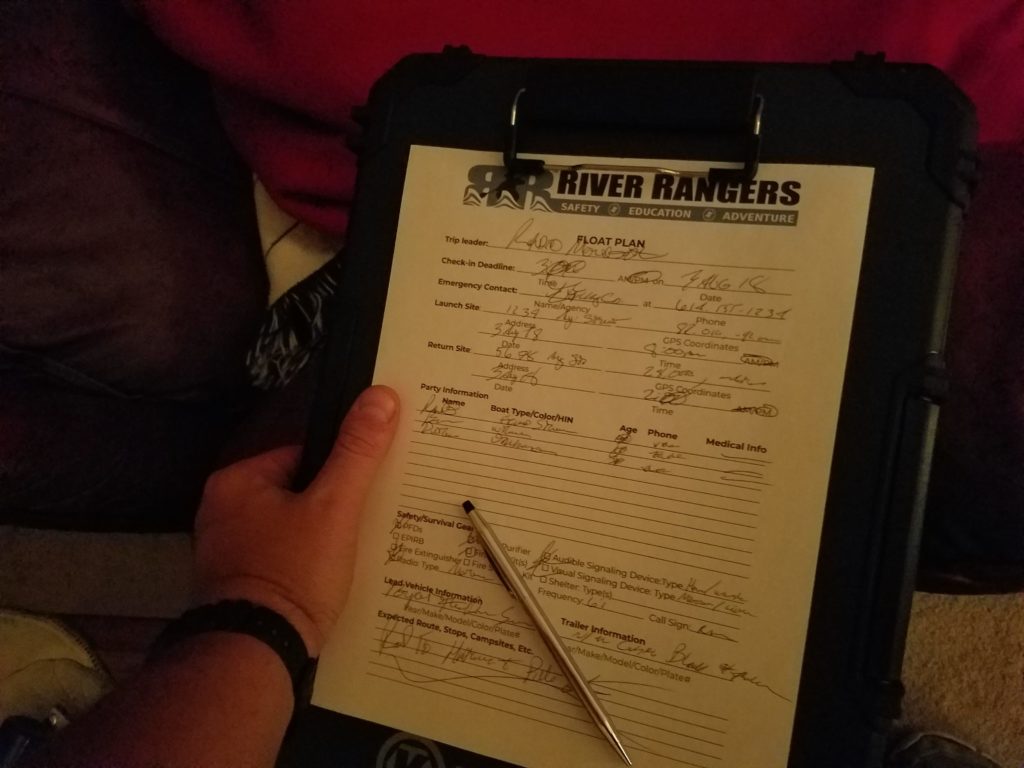Well, if you can get past the obnoxious title of this article and focus on the float plans, we can get somewhere today. I want to talk about float plans and why they are important for paddlers.
What are Float Plans?
A float plan is a simple document that includes the pertinent information about you and your group (if applicable). It also details anything else that could be useful in locating you should you fail to come back from your adventure. The primary purpose is to act as a safeguard against disaster. Should something happen to you, authorities will use this information to go looking for you. It is also a great way to share your adventure with someone who is staying home.
Elements of Float Plans
There are complex float plans and there are basic float plans, but every good float plan includes the same information.
- Name of everyone in the group
- Date, time and location of the launch
- Date, time and location of the take-out
- Boat makes and models, colors, Hull Identification Numbers
- Vehicle and trailer information
- Medical information of group members
- Safety equipment list
- Group leader
- Phone numbers, radio frequencies and call signs
- Emergency contact number(s)
Filing Float Plans
Filing a float plan can be as complex as submitting documents to local authorities with detailed maps and plans for your adventure. The standard 1-2 day float plan can simply be left with a responsible friend or family member. The USCG has a very complex form that you can download here. Sea Kayaker Magazine has a basic float plan you can use here. There are literally hundreds if not thousands of float plan forms you can find online and use, or you can create your own. Click here and you can use the very same float plan that River Rangers use.
Whichever method you use, just make sure to leave it with a responsible person. It may seem silly and unnecessary, but these plans are not meant for uneventful trips. They are meant as a way to get you back home when something goes wrong. Since you cannot plan whether or not something will go wrong, it is best to have a float plan. Chance always favors the prepared. So remember, before you go out on your next big adventure, make sure that you file a float plan with someone you trust to reach out to authorities if you haven’t checked in by the time you should have. Be safe, and we will see you on the water.

